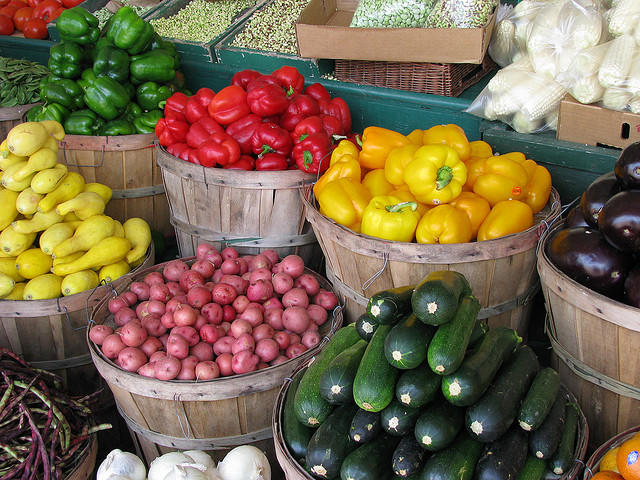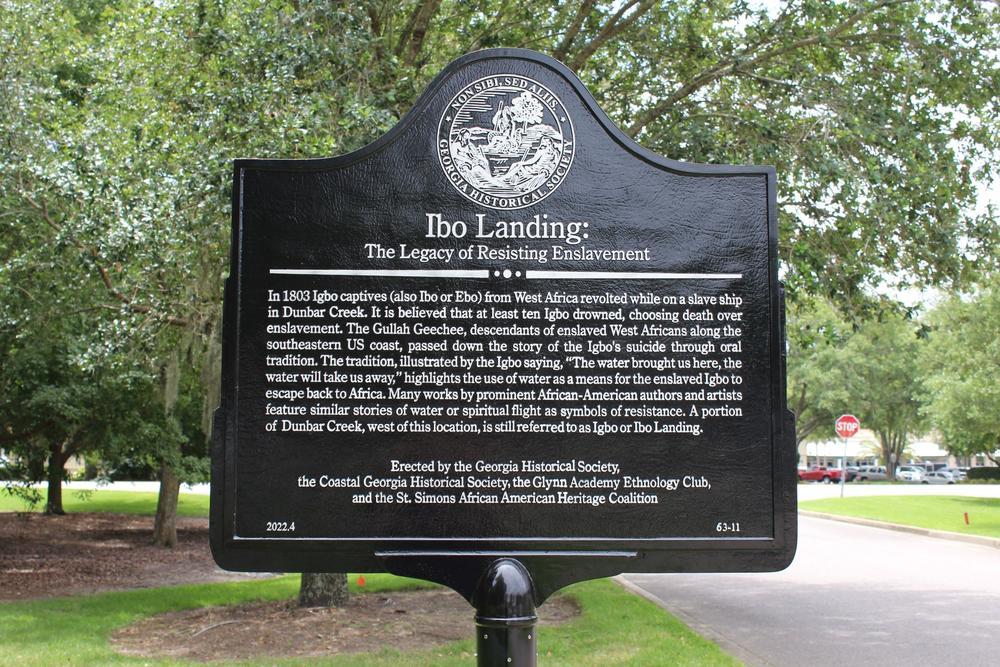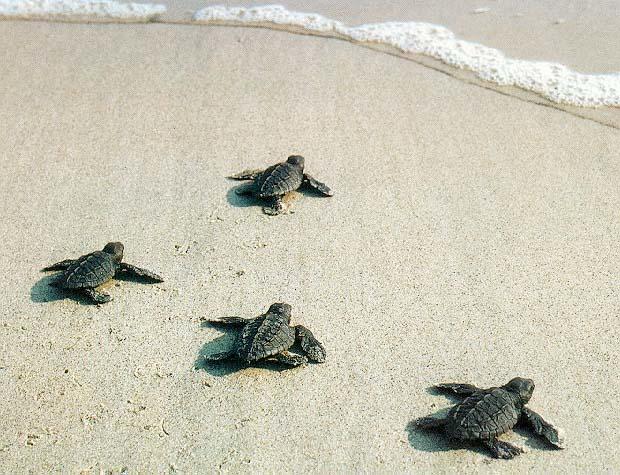
Section Branding
Header Content
Georgia Today: Judge accused of misconduct, UGA helping farmers, good news about sea turtles
Primary Content
On the Friday Dec. 30 edition of Georgia Today: Georgia judge accused of misconduct faces state judicial discipline panel, UGA researchers are helping farmers, good news about sea turtle populations

Peter Biello: Welcome to the new Georgia Today podcast from GPB News. Today is Friday, Dec. 30. I'm Peter Biello. Coming up on today's episode: The state Supreme Court will decide the fate of an appeals court judge accused of misconduct; the University of Georgia is using science to help farmers across the state; and we continue our look back at our newsroom's memorable stories of 2022. Today, some good news about the sea turtle population. These stories and more coming up on Georgia Today.
Story 1
Peter Biello: A state judicial discipline panel is deciding whether to recommend removing an appeals court judge or let him return to the bench. The panel is looking into whether Georgia Court of Appeals Judge Christian Coomer committed three dozen counts of judicial misconduct between 2015 and 2019. Coomer is accused of borrowing more than $360,000 from a client and wrote a will for the client, making himself the beneficiary. Lawyers for Coomer argued the evidence against him is weak and he should be allowed to return based on his, quote, "judicially perfect record." Coomer admitted to blurring the lines between attorney and friendship when he asked a former client for three loans. He says his mistakes won't be repeated. The three-person panel will make recommendations to the state Supreme Court.

Story 2
Peter Biello: Researchers at UGA are helping farmers across the state with growing organic vegetables. GPB's Devon Zwald has the story.
Devon Zwald: To answer increasing demand, University of Georgia researchers have launched a study looking at ways to help farmers transition to growing certified organic vegetables on out-of-use farmland or pasture. Kate Cassity-Dufffy is an assistant professor of horticulture at UGA and one of the study's researchers. She says while dormant land is often more available and affordable than active farms, it can suffer from a major obstacle for organic growers: lots of perennial weeds.
Kate Cassity-Dufffy: And I think there are some alternative organic methods for pests and disease. But when it comes to weeds, it's really hard because we — we can't use the herbicides that you use in conventional production.
Devon Zwald: Cassity-Duffy says one way organic farmers deal with weeds is by telling the land, which can cause erosion and other soil problems. This three-year study will test a method called "no till drill cover cropping," where farmers plant cover crops directly into the land with the hope that the crops can outcompete the weeds. For GPB News, I'm Devon Zwald.

Story 3
Peter Biello: You may have good memories of St. Simons Island. It's one of George's favorite places to get away to the beach. But St. Simons wasn't always a quaint beach town. Not long after the Revolutionary War, St. Simons Island was the center of the Sea Island cotton plantation economy and a major port of entry for enslaved people from Africa. While beachgoers may be unaware of that history, one event from that period has surfaced again and again in stories told by the Library of Congress, African American storytellers, filmmakers, and even in the music of none other than Beyonce Knowles. Now the history is getting a permanent marker there. But what has the legend meant to those who lived on the island for centuries? We'll try to answer that question in the next few minutes. GPB's Natalie Mendenhall takes us to Igbo Landing. And a warning, this story includes discussions of mass suicide.
Natalie Mendenhall: Today, Dunbar Creek looks like any other tidal creek you might drive across on your way to the beach at St. Simons Island. Amy Mitchell Roberts is from here. She sees something else. Roberts is descended from enslaved people who worked this island, which means she's Gullah Geechee. She remembers the warning a neighbor got from his mother about going down to Dunbar Creek.
Amy Mitchell Roberts: You know, she wouldn't let her son go fishing down there because it was the end of the world.
Natalie Mendenhall: The end of the world: That's when about 75 people decided to rebel against the slavers who had taken them on a three-month voyage from West Africa to St. Simons Island. Mitchell Roberts first learned this and other lessons in a one-room schoolhouse on the island, where today she directs the African American Heritage Coalition.
Amy Mitchell Roberts: As they was on the ship, they decided that this was not the life that they wanted. This was not what they bargained for.
Natalie Mendenhall: And so they took control of the ship and drove their captors into the water. But there were still men on the shore waiting to force the Igbo onto plantations.
Amy Mitchell Roberts: When the ship — the boat — docked, they just walked over into the water; they decided that's what they would do. "The water brought us, and the water will take us away."
Natalie Mendenhall: What you believe happened next depends on what you or your ancestors needed from the story.
Griffin Lutsen: Even this story now has grown into something larger than what happened on that day.
Natalie Mendenhall: That's Griffin Lotson, Amy's cousin, and the vice chairman of the Gullah Geechee Culture Heritage Commission. He remembers being told by his father that when the Igbo went into the water, they didn't drown: They flew home.
Griffin Lotson: And the Flying African stories come about because the only thing you had in your mind — like, the Igbos was being freed.
Natalie Mendenhall: Freedom was not on the mind of Georgia planters after the incident. In a letter written not long after the rebellion, Savannah slave trader William Mein saved his sympathy for a white overseer: "Poor fellow lost his life," Mein wrote. As for how Mein and others in his class felt about the 12 Igbo in the group that ultimately drowned.
Amir Jamal Touré: These Africans are money to them; they are wealth to them.
Natalie Mendenhall: That's Amir Jamal Touré, Gullah Geechee fellow at Georgia Southern University. Touré says it's wrong to interpret what happened at the Igbo landing site as a mass suicide.
Amir Jamal Touré: That's somebody else shaping the narrative.
Natalie Mendenhall: Instead, he says: See the drowning as an act of resistance.
Amir Jamal Touré: They're, like, saying that, basically, "No man owns my soul. Only God owns my soul."
Natalie Mendenhall: Bobby Aniewku says that's a story that's traveled the globe.
Bobby Aniewku: And it's called the first freedom march in the United States.
Natalie Mendenhall: Aniewku, born in Nigeria, is an Oso, or spiritual adviser in the Igbo tradition. He's also an Atlanta attorney who first heard of the story on a St. Simons vacation. Then in 2016, Aniewku was inspired to do more work at the Igbo Landing site. He's building on a visit by Igbo descendants from Haiti, Brazil, the Bahamas and Barbados years earlier. He and others believed the souls of the rebel Igbo were trapped in the water.
Bobby Aniewku: They're still there, after all these years. They never left. They died a violent death.
Natalie Mendenhall: So Aniewku and other Igbo leaders performed a rite of passage called equa oso, which means something like celebrating the dead.
Bobby Aniewku: Now their souls are at peace.
Natalie Mendenhall: And, says Bobby Aniewku, that set the souls of Igbo Landing free. For GPB News, I'm Natalie Mendenhall. The Igbo Landing site is now commemorated by a Georgia historical marker near the corner of Sea Islands and Puerto Rico's Road. Rachel Waters and several other students at the Glenn Academy applied for the marker under the guidance of Amy Mitchell Roberts and Sandy White from the coastal Georgia Historical Society. A special thanks to Phil Morrison and the Phil Morrison Trio for the use of this theme.
Phil Morrison (singing): Remember Igbo Landing. They walked in to the sea. Until the last man standing.

Story 4
Peter Biello: Georgia's Jekyll Island saw a historic showing of sea turtles this year, recording more nests than any other populated beach in the state. GPB's Benjamin Payne reports.
Benjamin Payne: Sea turtles are making a comeback in Georgia as the number of nests this year recently topped 4,000, an all time high. No place in Georgia saw more nests than Jekyll Island, where nesting season wrapped up just last week. About 250 were counted on Jekyll, according to the Georgia Sea Turtle Center. It's roughly a tenfold increase over the island's low point in 2004. So what explains this dramatic rise? Here's David Zailo, a researcher at the Georgia Sea Turtle Center.
David Zailo: Likely as the result of a lot of conservation measures that were enacted 30-plus years ago.
Benjamin Payne: One of them being a requirement that commercial fishing boats install turtle excluder devices, which make it possible for sea turtles to escape from fishing nets. Silo also points to Jekyll Island's light ordinance, which makes the beach darker and therefore more sea turtle-friendly. For GPB News, I'm Benjamin Payne.
Story 5
Peter Biello: Now, if you have not made your New Year's Eve plans yet, it's not too late. There are several options for celebrating the occasion around the state. Among them, the beloved peach drop at Underground Atlanta: That's returning this year after three years of cancellations due to COVID-19 concerns. If you'd like to put an alpine twist on your New Year's celebration, head up to Helen for the annual dropping of the Edelweiss. An edelweiss is a mountain flower that typically grows in southern Europe. There is another flower-themed drop happening in McDonough: The 10th annual New Year's Eve geranium drop in McDonough starts with music and entertainment on the square at 9 p.m. and a countdown at midnight. In Middle Georgia. You can celebrate New Year's Eve, the Perry way with the Perry Buzzard Drop. And in a small town on the west side of the state, you'll find the annual Possum Drop on Dec. 31. Tallapoosa, Ga., rings in the New Year by dropping a stuffed possum named Spencer.
So lots of dropping going on across the state, apparently. Drop us a line, please, if you've got a comment or a suggestion for what we should feature on the podcast in the coming year. Our email address is GeorgiaToday@GPB.org.
I'm Peter Biello. Thank you so much for listening. We'll see you in the new year.



